Current Lab Members
Graduate Students
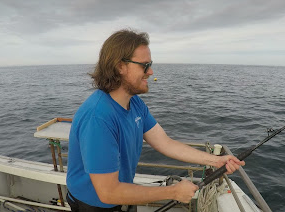
Daniel Daye
Daniel is a Master’s student in the Biological and Environmental Sciences graduate program, specializing in Ecology and Ecosystem Sciences. He graduated from the University of Massachusetts Amherst in 2017, earning his BS in Biology. After graduating, he worked as a lab technician for an animal behavior lab, studying visual cognition in the jumping spider genus Phidippus. He is interested in understanding habitat use in a variety of migratory shark species. His research focuses on applying machine learning to develop habitat utilization models and neural networks for predicting habitat use based on satellite telemetry data.
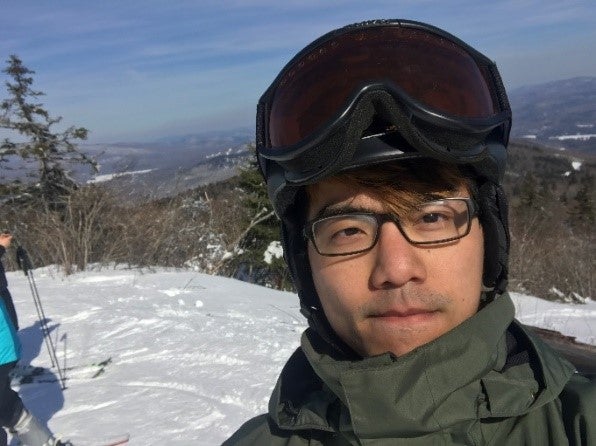
Julian Garrison
Julian is a Master’s student in the Biological and Environmental Sciences graduate program at URI, specializing in Evolution and Marine Biology. He earned his BA in Biology and Environmental Studies from Bowdoin College, where his research focused on the impacts of carbon dioxide and nitrogen enrichment on leaf surface anatomy and photosynthesis of the common reed, Phragmites australis. Broadly, Julian is interested in how ecological interactions and community patterns are affected by anthropogenic disturbances. His graduate research uses satellite telemetry and machine learning for developing habitat utilization models for shortfin mako sharks and applications towards improved management.
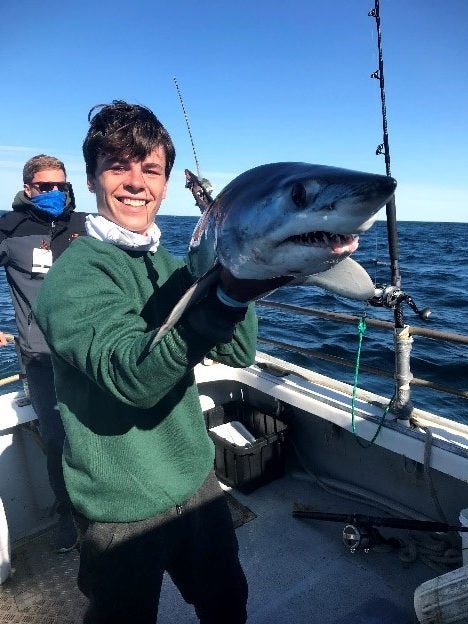
Colby Kresge
Colby is a Master’s student in the Biological and Environmental Sciences graduate program at URI, specializing in Evolution and Marine Biology. He earned a BS in Environmental Science & Management from URI. As an undergraduate, he helped document movements of mako sharks in the Western North Atlantic and developed a photo identification library for southern stingrays at Stingray City in the Cayman Islands. He was a recipient of a URI² Undergraduate Research Grant and received an Alpha Research Award from the Department of Biological Sciences. Colby’s MS research focuses on migratory patterns of mako sharks in the Atlantic.
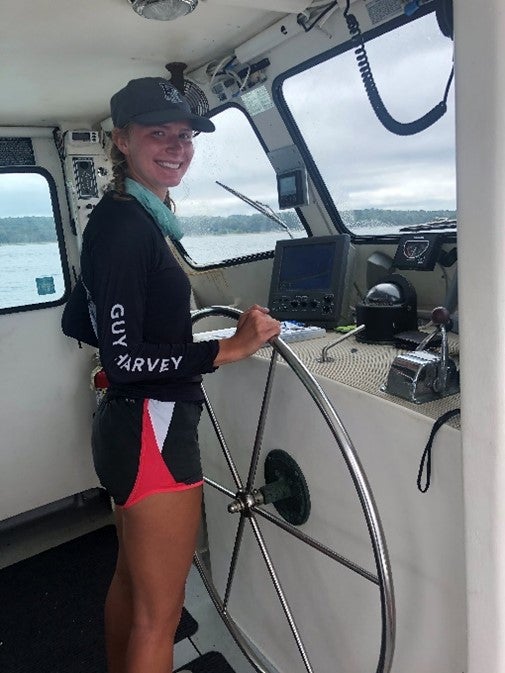
Bethany DeLoof
Bethany is a Master’s student in the Biological and Environmental Sciences graduate program, specializing in Evolution and Marine Biology. She earned a BS in Marine Biology and a BA in Writing and Rhetoric from URI. While at URI she worked research projects evaluating tag and recapture data to monitor stingrays at Stingray City in the Cayman Islands and characterizing patterns of occurrence of elasmobranchs in Delaware Bay in NMFS surveys. At URI Bethany was captain of the track team, founder and president of Shark Club and a writer for the URI research magazine Momentum. She received a Biological Sciences Alpha Award for her contributions to URI’s research efforts. Bethany’s graduate research examines migratory patterns of sand tiger sharks tracked with acoustic telemetry methods along the US East Coast.
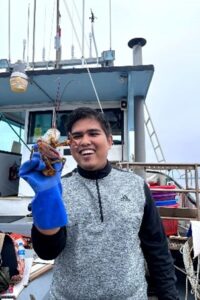
Helmi Caesar
Helmi is a Master’s student in the Environmental Management and Science graduate program, specializing in Conservation Biology at URI. He earned his BS in marine science from the University of Syiah Kuala in 2017; during his undergraduate study, he was deeply involved in the GIS and tropical marine ecology lab as a teaching assistant. His undergraduate thesis examined the biological aspects of caught sharks in East Java, Indonesia and was funded by the World Wildlife Fund. After graduating, he worked with the Wildlife Conservation Society on a socio-economic research project with Indonesian shark fishermen. He received an Indonesian government scholarship for his graduate studies at URI and is conducting research evaluating the effectiveness of Marine Protected Areas as a tool for management of shark populations in Indonesia.
Undergraduate Students
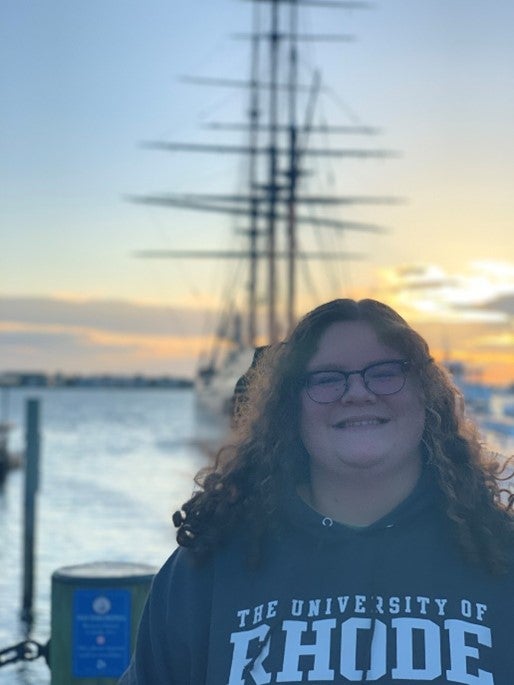
Katie Gheysen
Katie is a BS Marine Biology and Spanish double major from Vernon Hills, IL. She completed a Coastal Fellows internship studying three-dimensional habitat use of shortfin mako sharks with Dr. Wetherbee and is interested in shark behavior and ecology. In the past Katie has worked on projects examining southern stingray exposure to sunscreen and distribution and abundance of sharks and rays in Delaware Bay. She is currently president of the Scuba Club at URI and is an active member of both the URI Quidditch team and URI Concert Band.
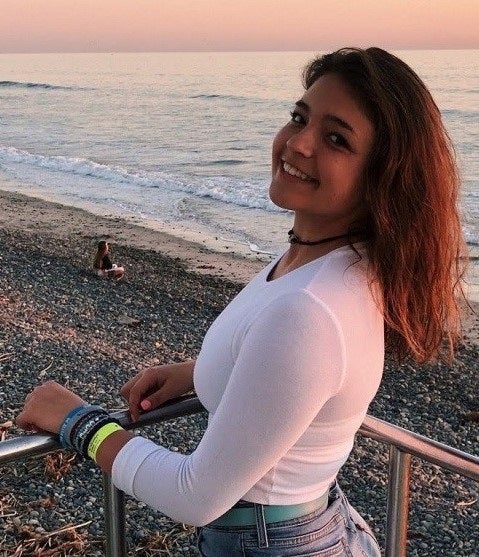
Maricarmen Serna
Maricarmen is a BS Marine Biology and Environmental and Resource Economics double major from San Antonio, TX with a specialization in green markets and sustainability. She is a Science and Engineering Fellow studying social networks in stingrays at Stingray City, Cayman Island with Dr. Wetherbee. Her interests include migratory patterns of sharks (favorite species porbeagle and tiger sharks). She is on the URI Powerlifting Team and competes nationally. She lives part time in Cancun and has had regular interaction with Caribbean marine life while growing up. She has received a Presidential Scholarship, a URI Endowed Scholarship, a URI B & T Garrick Scholarship, and received an Early Undergraduate Research, Scholarly, and Creative Opportunities to conduct research at URI.
Recent Lab Members
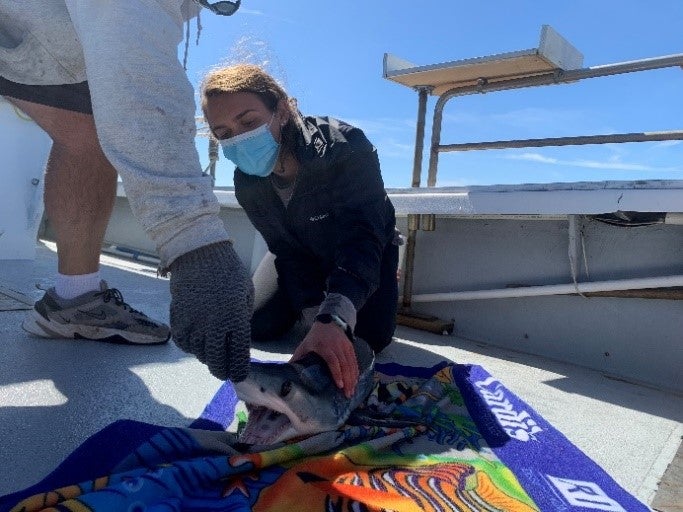
Maria Manz
Maria received her Master’s degree from the Graduate School of Oceanography specializing in Biological Oceanography. She conducted her MS research on spatial ecology of shortfin mako sharks in the Western North Atlantic and Gulf of Mexico using satellite tracking data to investigate movement behavior of mako sharks and to examine their distribution relative to human activities such as jurisdictional waters, offshore wind development, and oil rigs, as well as to assess the effectiveness of current fisheries management policy. She is a PhD student at Stony Brook University.
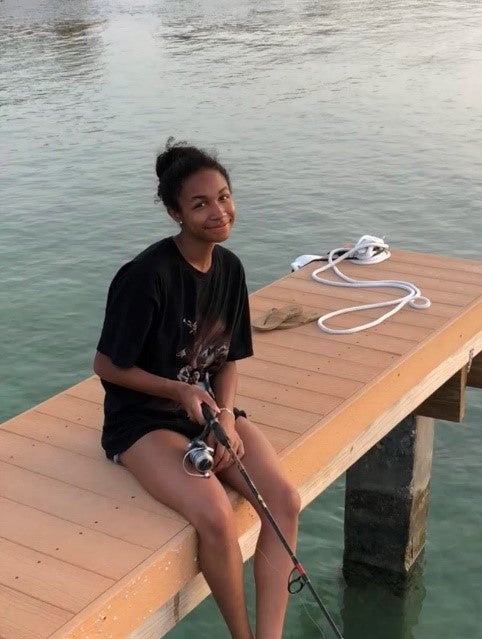
Jahnae Drummond
Jahnae is a marine biology major from Baltimore, MD. She has a keen interest in research with sharks and rays and is working on a project using photo ID software to identify stingrays at Stingray City in the Cayman Islands. She is also analyzing tag and recapture data for the stingrays and investigating social network patterns among the stingrays. Jahnae has received scholarships from The National Aquarium in Baltimore Maryland, StepToSuccess and RhodyNow. She belongs to the Fishing Club and Marine Science Society at URI. Jahnae enjoys snorkeling and hands on activities with marine organisms.
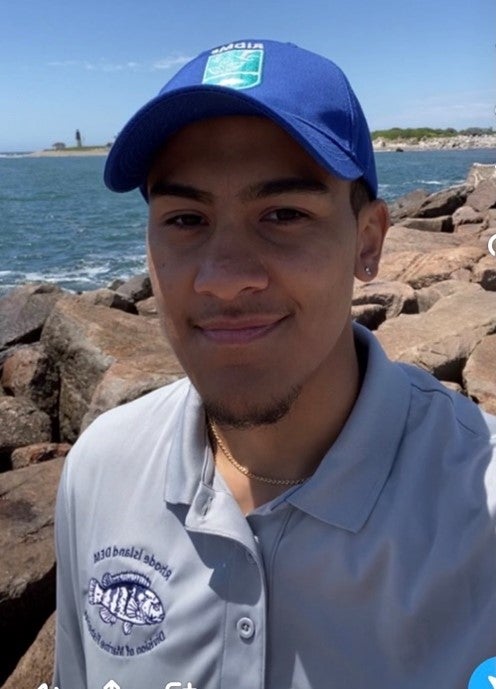
Dario Castillo
Dario is a marine biology major from Cranston, Rhode Island with a keen interest in the diversity of fishes. He is a volunteer at Mystic Aquarium as an exhibit educator for the California sea lions, harbor seals, northern fur seals, and spotted seals. He also works with Rhode Island DEM Marine Fisheries as a field technician. Dario is currently analyzing tag and recapture data for southern stingrays at the world famous Stingray City in the Cayman Islands to investigate abundance, composition and temporal trends of the stingray aggregation over the past decade. Summer of 2021 Dario is one of four students in the country completing a National Geographic Society STEM Field Assistant. He is also helping with the mako shark fishing and tagging project.

Elizabeth Saraf
Elizabeth recently graduated from URI with a BS in Marine Biology. At URI Elizabeth completed a Coastal Fellows internship studying foraging behavior of tiger and shortfin mako sharks with Dr. Wetherbee and served as a mentor for URI Shark Camp. She received a NOAA Hollings Scholarship and worked with NOAA Fisheries Monterey, CA investigating Pelagic Red Crabs. Elizabeth was a TA for the field methods for shark research course, which included a week in Isla Mujeres studying whale sharks. She spent a semester studying abroad in Bermuda investigating impacts of temperature on the respiration of an endemic nudibranch. She also investigated the influence of prey on movement patterns of tiger sharks at French Frigate Shoals, Northwestern Hawaiian Islands. Elizabeth was the URI Marine Biology student mentor and the editor of the Marine Biology newsletter. She was also an Undergraduate Teaching Assistant for the Marine Biology (BIO 360) course. Her research interests include sensory biology and physiology of marine species, particularly anthropogenic impacts on marine populations. Elizabeth will attend Nova Southeastern University for her MS degree studying navigation in sharks.
 Home
Home Browse
Browse Close
Close Events
Events Maps
Maps Email
Email Brightspace
Brightspace eCampus
eCampus


